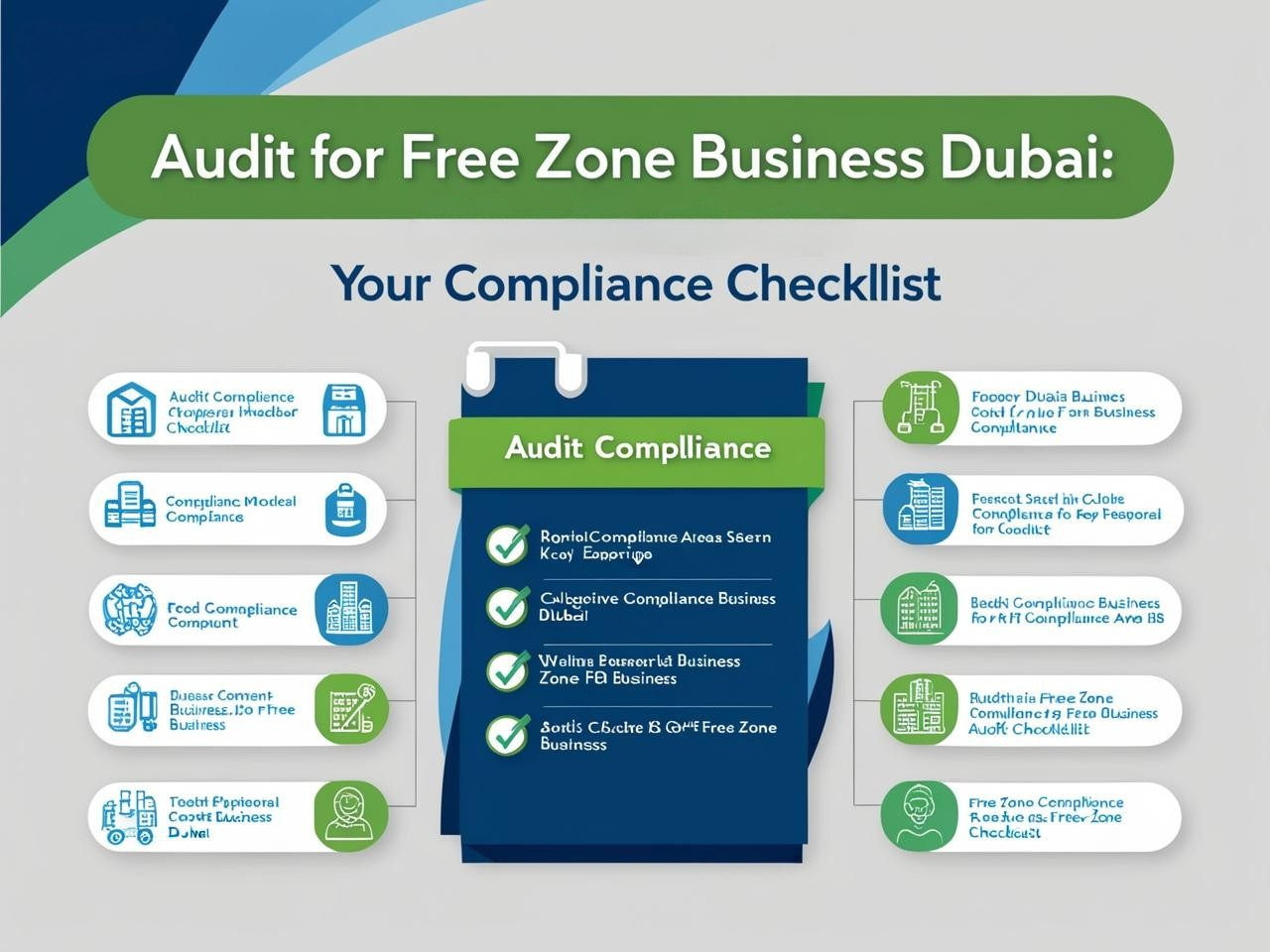Introduction: Navigating the Free Zone Audit Process
Dubai’s
Free Zones offer numerous advantages for businesses, including tax exemptions, full ownership, and simplified operational regulations. However, despite the many benefits, Free Zone businesses are still required to comply with specific auditing regulations. The audit process ensures that companies maintain transparency, meet legal standards, and enhance their financial credibility.
This blog will outline what triggers audit requirements in
Free Zones, key documentation needed, deadlines, and authority expectations. We will also explain how
Young and Right supports Free Zone businesses with audits to ensure they remain compliant with local laws.
What Triggers Audit Requirements in Free Zones?
While Dubai’s
Free Zones are designed to encourage business development, they still have certain regulatory frameworks in place. One of the most important requirements for Free Zone businesses is the mandatory audit. Understanding when and why these audits are triggered can help businesses stay ahead of compliance requirements.
1. Legal Requirements for Free Zone Businesses:
- As part of the UAE’s corporate governance, Free Zone businesses are often required to undergo Statutory audits to ensure their financial statements are accurate and compliant with local regulations.
- Most Free Zones in Dubai require businesses to submit audited financial reports annually. The exact requirement varies depending on the Free Zone where the business is registered.
2. Business Size and Nature:
- Generally, the size and nature of a business will determine the audit trigger. Small businesses with fewer employees and minimal transactions may be exempt from certain audit requirements. However, larger companies or those involved in international trade or complex transactions typically face mandatory audits to ensure financial integrity.
3. License Renewal:
- A key trigger for Free Zone businesses is license renewal. Most Free Zones require an audit report as part of the documentation needed for license renewal. Without this report, businesses may not be able to continue their operations or renew their licenses, making the audit process critical for business continuity.
4. Tax Compliance:
- Businesses that are subject to VAT or other taxes are required to provide audited financial statements to ensure compliance with the UAE Federal Tax Authority (FTA) regulations. Failing to comply with tax audit requirements can lead to penalties and complications with tax filings.
Essential Documentation & Formats
Proper documentation is crucial for a smooth and successful audit process. The following key documents and formats are typically required for a Free Zone audit:
1. Financial Statements:
2. These financial statements provide an overview of the company’s financial performance and position. They must be accurate, complete, and in line with local regulations, including IFRS (International
Financial Reporting Standards).
3. Invoices and Receipts:
- All invoices and receipts for transactions throughout the fiscal year should be maintained and available for the audit process. This includes both sales and purchase invoices, payment receipts, and bank statements.
4. Tax Documents:
- If the business is VAT-registered, VAT returns and payment records should be available. The tax audit will focus on ensuring that VAT calculations, claims, and payments are accurate.
5. Contracts and Agreements:
- Any legal agreements, contracts with customers, suppliers, and employees, as well as shareholder agreements, should be provided. These documents help auditors verify revenue recognition and liabilities.
6. Internal Control Documents:
- The auditor will review internal controls, policies, and procedures, ensuring that these are in place to protect assets, prevent fraud, and ensure that financial records are accurate.
7. Bank Statements and Cash Records:
- Monthly bank statements and reconciliations must be available to verify cash flow, assets, and liabilities. These records are crucial for ensuring that a business’s actual finances match its reported finances.
8. Payroll and HR Documents:
- Employee payroll records, contracts, and benefits documentation should be available for review, especially if the audit includes payroll verification.
Annual Deadlines & Authority Expectations
Deadlines for audits and reports vary depending on the Free Zone. However, they generally follow a similar pattern:
1. Annual Reporting Deadlines:
- Free Zone businesses are typically required to submit their audited financial statements at the end of their financial year or within a set time frame after the fiscal year ends (usually within 3-6 months). Be sure to check the specific deadlines with the Free Zone authority to avoid penalties.
2. Audit Submission Process:
- Once the financial statements are audited, the auditor will provide a report which must be submitted to the Free Zone authority for review. The audit report is used to confirm that the company is operating within the legal and regulatory guidelines set forth by the Free Zone and the UAE government.
3. Compliance with Free Zone Regulations:
- Each Free Zone has its own specific regulatory requirements, including Financial Reporting and audit guidelines. Compliance with these regulations is critical for maintaining your Free Zone license and avoiding fines or penalties. Authorities typically require a report on financial performance, tax filings, and any discrepancies found during the audit.
4. Penalties for Late Submissions or Non-Compliance:
- Failing to submit an audit report or to comply with Free Zone requirements can result in penalties, including the revocation of your business license, fines, or legal action. It is essential to ensure that audits are completed on time and meet all regulatory expectations.
How Young and Right Assists Free Zone Businesses
At
Young and Right, we understand the complexities of
audits in Free Zones and the importance of compliance. Our team of experts offers comprehensive auditing services designed to meet the specific needs of Free Zone businesses in Dubai. Here’s how we help:
1. Expert Knowledge of Free Zone Regulations:
- We have a deep understanding of Free Zone requirements, including the regulations specific to DMCC, DAFZA, JAFZA, and other Free Zones. Our experience ensures that your business complies with all local laws and audit requirements.
2. Streamlined Audit Preparation:
- We help you organize and prepare all necessary financial records and documents. This streamlining process makes the audit quicker and more efficient, reducing the chance of errors and discrepancies.
3. Timely Audit Completion:
- Our team ensures that audits are completed on time and in compliance with all Free Zone deadlines, so your business can continue operating without interruption.
4. Post-Audit Support:
- After the audit, we provide guidance on any issues that may arise and offer recommendations for improving your internal controls, Financial Reporting, and overall business operations.
5. Affordable and Scalable Services:
- Whether you’re a small business or a large enterprise, we offer cost-effective and scalable audit services that cater to your business’s unique needs and transaction volume.
Conclusion
The audit process for Free Zone businesses in Dubai can seem overwhelming, but it is a critical aspect of ensuring compliance, maintaining transparency, and avoiding potential penalties. With the right preparation, documentation, and expert support, your Free Zone audit can be completed smoothly and efficiently.
At
Young and Right, we specialize in providing tailored audit assistance to Free Zone businesses in Dubai. Let our team of professionals help you navigate the complexities of Free Zone audits and ensure your business remains compliant and well-prepared for future growth.
Reach out to
Young and Right today to simplify your Free Zone audit process and maintain compliance with ease!



